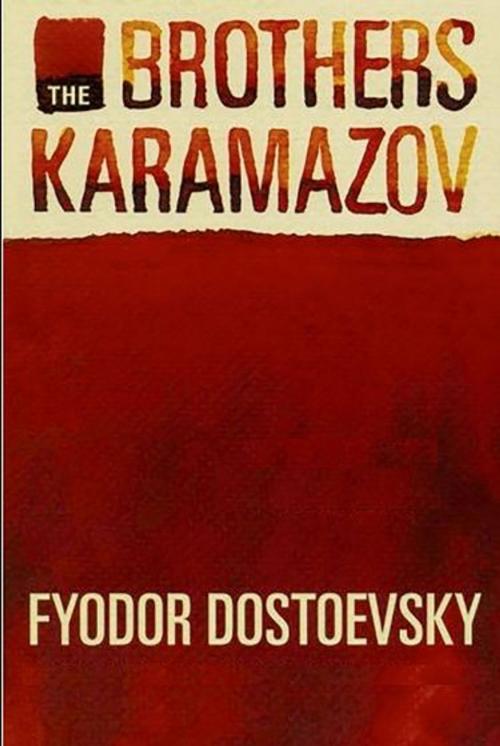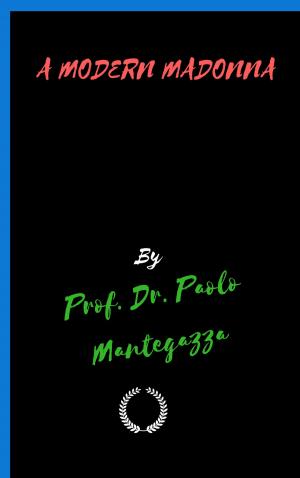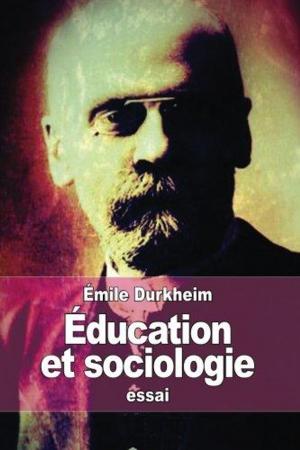| Author: | Fyodor Dostoyevsky | ISBN: | 1230002335445 |
| Publisher: | Jwarlal | Publication: | May 23, 2018 |
| Imprint: | Language: | English |
| Author: | Fyodor Dostoyevsky |
| ISBN: | 1230002335445 |
| Publisher: | Jwarlal |
| Publication: | May 23, 2018 |
| Imprint: | |
| Language: | English |
This book is among the best-selling popular classics "bestseller". Here is an extract of this book :
Alexey Fyodorovitch Karamazov was the third son of Fyodor Pavlovitch Karamazov, a land owner well known in our district in his own day, and still remembered among us owing to his gloomy and tragic death, which happened thirteen years ago, and which I shall describe in its proper place. For the present I will only say that this “landowner”—for so we used to call him, although he hardly spent a day of his life on his own estate—was a strange type, yet one pretty frequently to be met with, a type abject and vicious and at the same time senseless. But he was one of those senseless persons who are very well capable of looking after their worldly affairs, and, apparently, after nothing else. Fyodor Pavlovitch, for instance, began with next to nothing; his estate was of the smallest; he ran to dine at other men's tables, and fastened on them as a toady, yet at his death it appeared that he had a hundred thousand roubles in hard cash. At the same time, he was all his life one of the most senseless, fantastical fellows in the whole district. I repeat, it was not stupidity—the majority of these fantastical fellows are shrewd and intelligent enough—but just senselessness, and a peculiar national form of it.
He was married twice, and had three sons, the eldest, Dmitri, by his first wife, and two, Ivan and Alexey, by his second. Fyodor Pavlovitch's first wife, Adelaïda Ivanovna, belonged to a fairly rich and distinguished noble family, also landowners in our district, the Miüsovs. How it came to pass that an heiress, who was also a beauty, and moreover one of those vigorous, intelligent girls, so common in this generation, but sometimes also to be found in the last, could have married such a worthless, puny weakling, as we all called him, I won't attempt to explain. I knew a young lady of the last “romantic” generation who after some years of an enigmatic passion for a gentleman, whom she might quite easily have married at any moment, invented insuperable obstacles to their union, and ended by throwing herself one stormy night into a rather deep and rapid river from a high bank, almost a precipice, and so perished, entirely to satisfy her own caprice, and to be like Shakespeare's Ophelia. Indeed, if this precipice, a chosen and favorite spot of hers, had been less picturesque, if there had been a prosaic flat bank in its place, most likely the suicide would never have taken place. This is a fact, and probably there have been not a few similar instances in the last two or three generations. Adelaïda Ivanovna Miüsov's action was similarly, no doubt, an echo of other people's ideas, and was due to the irritation caused by lack of mental freedom. She wanted, perhaps, to show her feminine independence, to override class distinctions and the despotism of her family. And a pliable imagination persuaded her, we must suppose, for a brief moment, that Fyodor Pavlovitch, in spite of his parasitic position, was one of the bold and ironical spirits of that progressive epoch, though he was, in fact, an ill-natured buffoon and nothing more. What gave the marriage piquancy was that it was preceded by an elopement, and this greatly captivated Adelaïda Ivanovna's fancy. Fyodor Pavlovitch's position at the time made him specially eager for any such enterprise, for he was passionately anxious to make a career in one way or another. To attach himself to a good family and obtain a dowry was an alluring prospect. As for mutual love it did not exist apparently, either in the bride or in him, in spite of Adelaïda Ivanovna's beauty. This was, perhaps, a unique case of the kind in the life of Fyodor Pavlovitch, who was always of a voluptuous temper, and ready to run after any petticoat on the slightest encouragement. She seems to have been the only woman who made no particular appeal to his senses.
Immediately after the elopement Adelaïda Ivanovna discerned in a flash that she had no feeling for her husband but contempt. The marriage accordingly showed itself in its true colors with extraordinary rapidity. Although the family accepted the event pretty quickly and apportioned the runaway bride her dowry, the husband and wife began to lead a most disorderly life, and there were everlasting scenes between them. It was said that the young wife showed incomparably more generosity and dignity than Fyodor Pavlovitch, who, as is now known, got hold of all her money up to twenty-five thousand roubles as soon as she received it, so that those thousands were lost to her for ever. The little village and the rather fine town house which formed part of her dowry he did his utmost for a long time to transfer to his name, by means of some deed of conveyance. He would probably have succeeded, merely from her moral fatigue and desire to get rid of him, and from the contempt and loathing he aroused by his persistent and shameless importunity. But, fortunately, Adelaïda Ivanovna's family intervened and circumvented his greediness. It is known for a fact that frequent fights took place between the husband and wife, but rumor had it that Fyodor Pavlovitch did not beat his wife but was beaten by her, for she was a hot-tempered, bold, dark-browed, impatient woman, possessed of remarkable physical strength. Finally, she left the house and ran away from Fyodor Pavlovitch with a destitute divinity student, leaving Mitya, a child of three years old, in her husband's hands. Immediately Fyodor Pavlovitch introduced a regular harem into the house, and abandoned himself to orgies of drunkenness. In the intervals he used to drive all over the province, complaining tearfully to each and all of Adelaïda Ivanovna's having left him, going into details too disgraceful for a husband to mention in regard to his own married life. What seemed to gratify him and flatter his self-love most was to play the ridiculous part of the injured husband, and to parade his woes with embellishments.
This book is among the best-selling popular classics "bestseller". Here is an extract of this book :
Alexey Fyodorovitch Karamazov was the third son of Fyodor Pavlovitch Karamazov, a land owner well known in our district in his own day, and still remembered among us owing to his gloomy and tragic death, which happened thirteen years ago, and which I shall describe in its proper place. For the present I will only say that this “landowner”—for so we used to call him, although he hardly spent a day of his life on his own estate—was a strange type, yet one pretty frequently to be met with, a type abject and vicious and at the same time senseless. But he was one of those senseless persons who are very well capable of looking after their worldly affairs, and, apparently, after nothing else. Fyodor Pavlovitch, for instance, began with next to nothing; his estate was of the smallest; he ran to dine at other men's tables, and fastened on them as a toady, yet at his death it appeared that he had a hundred thousand roubles in hard cash. At the same time, he was all his life one of the most senseless, fantastical fellows in the whole district. I repeat, it was not stupidity—the majority of these fantastical fellows are shrewd and intelligent enough—but just senselessness, and a peculiar national form of it.
He was married twice, and had three sons, the eldest, Dmitri, by his first wife, and two, Ivan and Alexey, by his second. Fyodor Pavlovitch's first wife, Adelaïda Ivanovna, belonged to a fairly rich and distinguished noble family, also landowners in our district, the Miüsovs. How it came to pass that an heiress, who was also a beauty, and moreover one of those vigorous, intelligent girls, so common in this generation, but sometimes also to be found in the last, could have married such a worthless, puny weakling, as we all called him, I won't attempt to explain. I knew a young lady of the last “romantic” generation who after some years of an enigmatic passion for a gentleman, whom she might quite easily have married at any moment, invented insuperable obstacles to their union, and ended by throwing herself one stormy night into a rather deep and rapid river from a high bank, almost a precipice, and so perished, entirely to satisfy her own caprice, and to be like Shakespeare's Ophelia. Indeed, if this precipice, a chosen and favorite spot of hers, had been less picturesque, if there had been a prosaic flat bank in its place, most likely the suicide would never have taken place. This is a fact, and probably there have been not a few similar instances in the last two or three generations. Adelaïda Ivanovna Miüsov's action was similarly, no doubt, an echo of other people's ideas, and was due to the irritation caused by lack of mental freedom. She wanted, perhaps, to show her feminine independence, to override class distinctions and the despotism of her family. And a pliable imagination persuaded her, we must suppose, for a brief moment, that Fyodor Pavlovitch, in spite of his parasitic position, was one of the bold and ironical spirits of that progressive epoch, though he was, in fact, an ill-natured buffoon and nothing more. What gave the marriage piquancy was that it was preceded by an elopement, and this greatly captivated Adelaïda Ivanovna's fancy. Fyodor Pavlovitch's position at the time made him specially eager for any such enterprise, for he was passionately anxious to make a career in one way or another. To attach himself to a good family and obtain a dowry was an alluring prospect. As for mutual love it did not exist apparently, either in the bride or in him, in spite of Adelaïda Ivanovna's beauty. This was, perhaps, a unique case of the kind in the life of Fyodor Pavlovitch, who was always of a voluptuous temper, and ready to run after any petticoat on the slightest encouragement. She seems to have been the only woman who made no particular appeal to his senses.
Immediately after the elopement Adelaïda Ivanovna discerned in a flash that she had no feeling for her husband but contempt. The marriage accordingly showed itself in its true colors with extraordinary rapidity. Although the family accepted the event pretty quickly and apportioned the runaway bride her dowry, the husband and wife began to lead a most disorderly life, and there were everlasting scenes between them. It was said that the young wife showed incomparably more generosity and dignity than Fyodor Pavlovitch, who, as is now known, got hold of all her money up to twenty-five thousand roubles as soon as she received it, so that those thousands were lost to her for ever. The little village and the rather fine town house which formed part of her dowry he did his utmost for a long time to transfer to his name, by means of some deed of conveyance. He would probably have succeeded, merely from her moral fatigue and desire to get rid of him, and from the contempt and loathing he aroused by his persistent and shameless importunity. But, fortunately, Adelaïda Ivanovna's family intervened and circumvented his greediness. It is known for a fact that frequent fights took place between the husband and wife, but rumor had it that Fyodor Pavlovitch did not beat his wife but was beaten by her, for she was a hot-tempered, bold, dark-browed, impatient woman, possessed of remarkable physical strength. Finally, she left the house and ran away from Fyodor Pavlovitch with a destitute divinity student, leaving Mitya, a child of three years old, in her husband's hands. Immediately Fyodor Pavlovitch introduced a regular harem into the house, and abandoned himself to orgies of drunkenness. In the intervals he used to drive all over the province, complaining tearfully to each and all of Adelaïda Ivanovna's having left him, going into details too disgraceful for a husband to mention in regard to his own married life. What seemed to gratify him and flatter his self-love most was to play the ridiculous part of the injured husband, and to parade his woes with embellishments.













![Cover of the book Les Peintres Cubistes [Méditations Esthétiques] by Fyodor Dostoyevsky](https://www.kuoky.com/images/2018/february/300x300/1230002175164-f7dL_300x.jpg)

